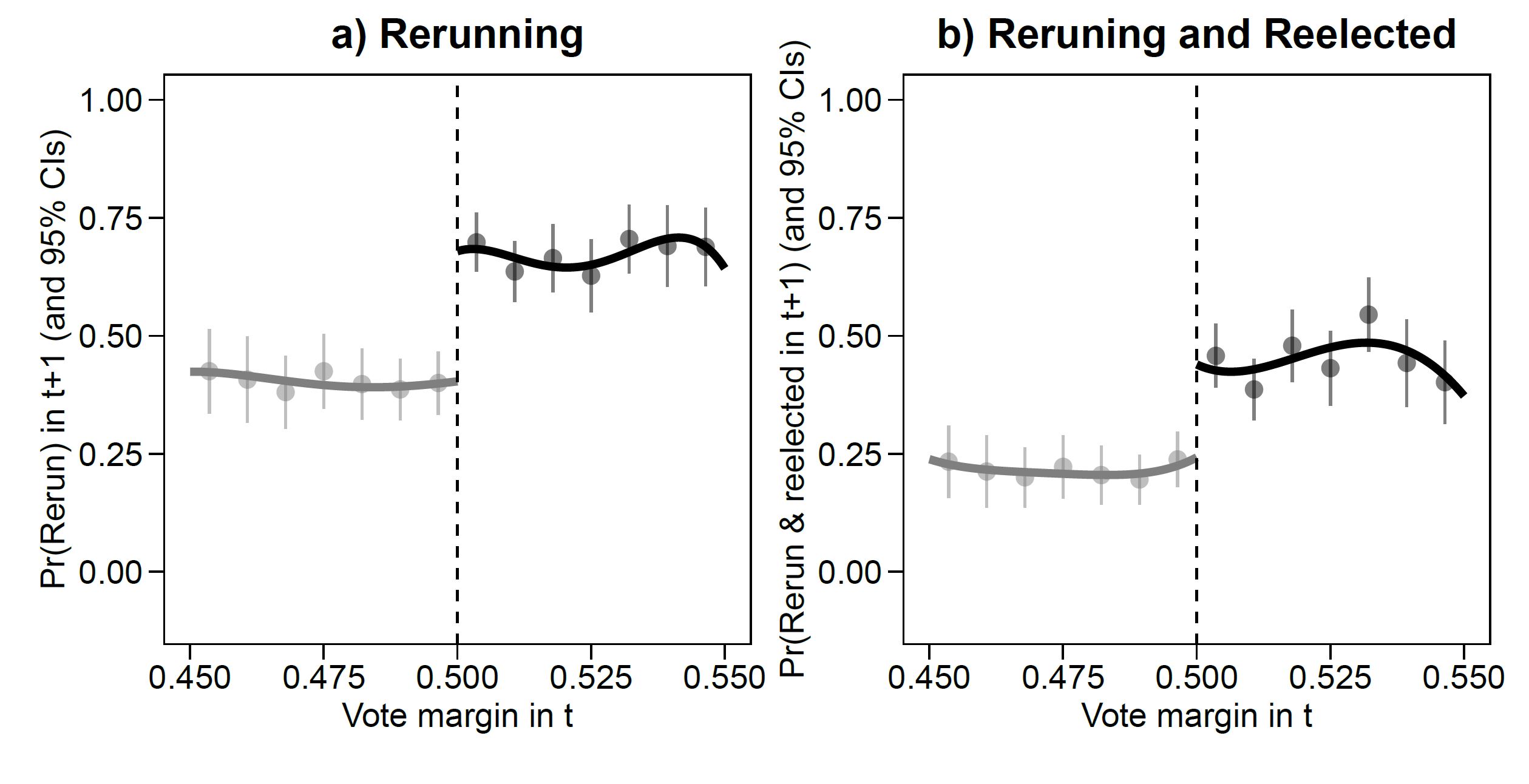Together with Stefan Müller (University College Dublin) I compare the strength of the incumbency advantage in local and national elections in PR systems by relying on the case of Ireland and by making use of the Regression Discontinutiy Design. We find evidence for an incumbency advantage in local elections which is just as strong as in national elections. These findings are interesting because previous research has described local elections under PR as a least-likely case for incumbency effects. The paper is forthcoming in Electoral Studies.
Here is the abstract:
Do candidates in local elections in a system using proportional representation benefit from an incumbency advantage? And which factors moderate the strength of this incumbency bonus? Analyzing seven decades of Irish local elections (1942–2019) conducted under proportional representation through the single transferable vote, we reassess and extend the mixed evidence on the incumbency advantage under proportional representation and in lower-order elections. By applying the Regression Discontinuity Design, we find that the incumbency advantage is at least as strong in Irish local as in general elections, which are conducted under the identical electoral system. In addition, we show that marginally elected candidates in local elections have much higher reelection probabilities when they do not face a high-quality candidate in their local electoral area after getting elected. The results point the importance of name recognition as a major driver of the incumbency advantage.
Michael Jankowski and Stefan Müller. 2021. The Incumbency Advantage in Second-Order PR Elections: Evidence from the Irish Context, 1942–2019. Electoral Studies (online first). DOI: https://doi.org/10.1016/j.electstud.2021.102331.
